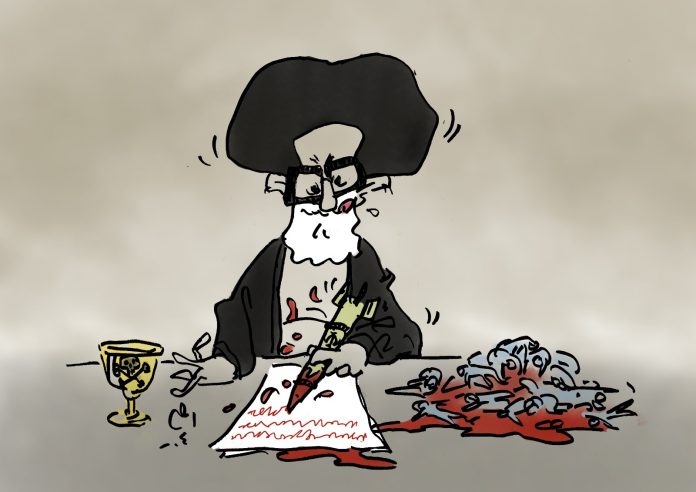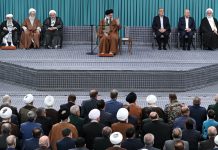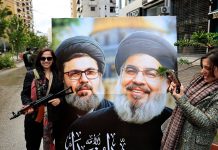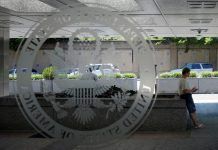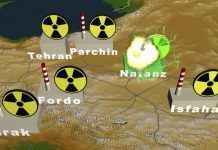Artist: Ahmad Barakizadeh
By Kayhan Life Staff
Ali Khamenei, the Supreme Leader of the Islamic Republic, agreed in recent days to engage in talks with the Trump administration, albeit indirectly. This was in response to a letter from U.S. President Donald Trump, which threatened military action if the theocracy failed to strike a deal over its controversial nuclear program.
However, despite Khamenei’s comment that Tehran favored indirect negotiations with Washington, US President Donald Trump appeared to suggest in a press briefing on Thursday that Tehran now preferred direct talks: “They wanted to use intermediaries; I do not think that is necessarily true anymore…I think they want to have direct talks,” Trump said.
Until now, Khamenei had steadfastly rejected the idea of dialogue, labeling it “unwise, unintelligent, and not honorable.” However, the rapidly deteriorating state of Iran’s economy and the regime’s waning influence in the Middle East appear to have forced him to reconsider. This about-face as “taking a sip from the cup of poison” echoed the infamous phrase from Khamenei’s predecessor, Ayatollah Ruhollah Khomeini, who reluctantly accepted a ceasefire in the protracted war with Iraq during the 1980s.
This turnaround follows the release of a third video by the clerical regime showcasing its underground missile facility, referring to it as a “missile city.” It also comes after a major cyberattack on Sepah Bank, comprising several military-affiliated entities, that has been reluctant to disclose its financial information. The attack exposed the glaring wealth inequality in Iran, where a privileged elite revels in opulence while the vast majority struggle to to meet their basic needs because of rampant inflation and the Iranian currency losing its value.
A recent report by Iran’s statistical center indicates that nearly one-third of the population earns less than $2 a day. In October, the government unveiled plans to drastically increase its military budget by nearly 200% for the upcoming Iranian calendar year starting March 21.
The regime is also facing serious scrutiny over its human rights record. Just in the first three months of 2025, Iran Human Rights (IHR) reports that the regime executed 230 individuals. The situation for religious minorities is particularly concerning. The Center for Human Rights in Iran (CHRI) has revealed that in 2024, there was a six-fold increase in the imprisonment of Christians. Authorities have handed down a total of 263 years in prison to 96 Christians.
Moreover, at least four prisoners have reportedly died in Iranian jails within just the first two months of 2025, victims of the deliberate denial of essential medical care—a common practice in the Islamic Republic.
The regime’s violent response to the Woman Life Freedom protests in 2022 was marked by brutal crackdowns, widespread internet blackouts, and the arrest of countless journalists. This crackdown led to over 20,000 detentions and the tragic deaths of more than 500 people, including at least 60 children.

